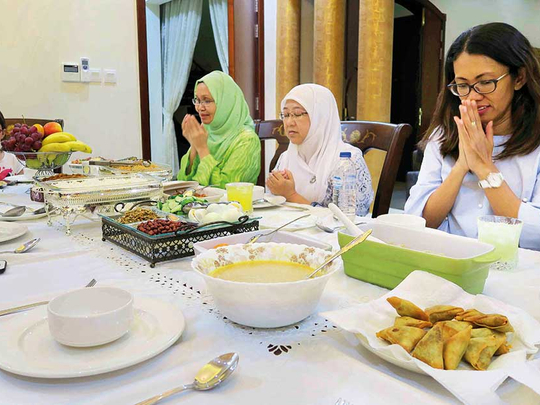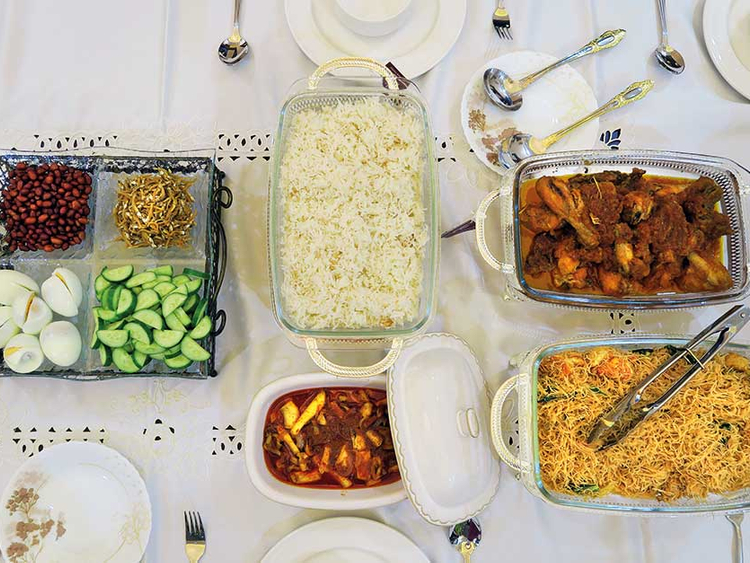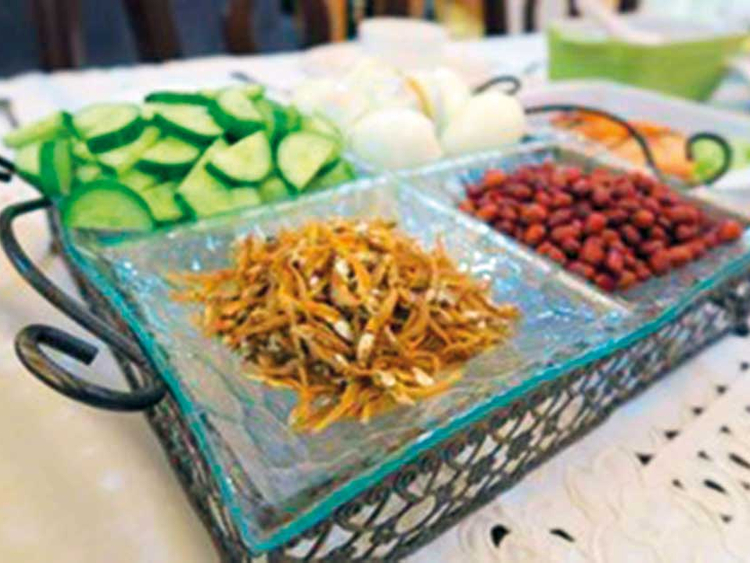
Sharjah: Malaysian mother Rahimah Al Amin has lived in the UAE for the past 19 years, but despite being 3,409 miles away from her home country, her iftar table looks as though it had been imported straight from Malaysia.
The Sharjah-based housewife cooks traditional Malay food for iftar, with the help of her 20-year-old daughter, Suraya.
“My favourite part about Ramadan is the fact that it brings families and people together, even people you haven’t seen in a long time,” said the 52-year-old mother.
According to Suraya, helping out in the kitchen during the holy month is a must in Malaysian households.
“I have to help my mum in the kitchen during Ramadan. There’s no question about it. It doesn’t matter what your age or gender is. Everyone will be in the kitchen helping out,” she said.
Al Amin and family first moved to the UAE in 1999 when her husband, a pilot, was relocated here. Although he passed away seven years ago, Elamin and her daughter still live in Sharjah.
The mother-daughter duo prepares many classic Malay dishes together, but their favourites are curry puffs and banana fritters.
“I make curry puffs from scratch. Everything is homemade — from beef and curry powder-covered potato cube filling all the way down to the dough,” said the 52-year-old mother.
For the particular day’s iftar, the main dish was Nasi Lemak — a staple Malaysian dish that consists of rice cooked with coconut milk and ginger — and Sambal Ayam, a complementing dish consisting of fried chicken cooked in chilli. Then there are other items like roasted peanuts, fried anchovies, cucumbers and eggs.
“Nasi Lemak is a big dish in Malaysia. You find it in stalls everywhere, usually wrapped in banana leaves. It’s like a fast food. People pick it up as they go,” said the housewife.
The aromatic scent of the Nasi Lemak wafted through the house, making guests even more eager to break their fast.
The pair also prepared Shorba (soup) and a dish called Mee Hoon Goreng — noodles cooked with prawns, vegetables, soy sauce and chilli.
While Shorba is mainly an Arabian food, Al Amin said many aspects of her life have been influenced by her living in the UAE, including her cooking.
The Shorba was a potato and carrot soup, a recipe she experimented with and perfected on her own.
Around half an hour before the sun sets, the Al Amin’s family friends begin to arrive.
Before entering the house, guests remove their shoes as is custom in Malaysia, which Suraya explained is mainly for religious purposes.
“Malaysians believe that all areas of the house must be kept clean, so that people can pray anywhere. Walking in with dirty shoes would make the floors dirty, and unfit for praying,” she said.
As soon as the call to prayer begins, people gather around the table, but before breaking their fast, the guests join the family in saying a small prayer.
After indulging in the feast, everyone sat around the living room, enjoying each other’s company and having dessert, which included a mixed nuts and fruit cake, and the pair’s personal favourite, banana fritters.
While the family spends most of their Ramadans here in the UAE, they did observed the month in Malaysia four years ago, which they look back on with fond memories.
Suraya reminisces about the bazaars in her home country.
“We spent Ramadan in Malaysia because the holy month in 2013 coincided with summer holidays,” she said.
“My favourite memory is going to the Ramadan bazaar, which is like an open market where people sell lots of traditional Malaysian dishes, desserts and drinks before iftar, from around 4pm to 6pm. They would sell for the entire month,” she added.
Al Amin uses the holy month to instill life lessons in her daughter, such as teaching her to appreciate the blessings that God has given her.
“During Ramadan, I try to teach my daughter to give back and be appreciative of what we have as it is a blessing. I feel like the holy month shows us that while we may feel hungry from sunrise to sunset, there are those who feel hungry all the time,” said Al Amin.
Liyana Al Abdul Salam is an intern at Gulf News










